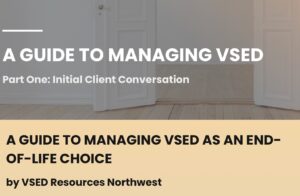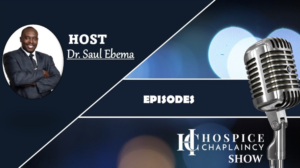Rosemary Bowen was not terminally ill. She hastened her death by fasting. It took seven days.
Ten states and the District of Columbia allow for “medical aid in dying” (MAID). In those jurisdictions, terminally ill people with six months or less prognosis can get a prescription for a lethal medication in order to hasten their deaths. But what about patients not in one of these states or those whose life expectancy is greater than six months? VSED is an option.
Voluntarily Stopping Eating and Drinking (VSED) can be practiced by those seeking an earlier death. It’s what Rosemary did.
 Rosemary Bowen, at 94, was living independently. She said she had had a wonderful life and did not look forward to a long, slow decline toward death. For years, she had been telling her children, “That her life would not be worth living if she had to depend on caretakers to feed her, dress her, and take her to the toilet.” Then, it happened. She fractured her back and went to rehab but was unable to live independently. That was enough for her.
Rosemary Bowen, at 94, was living independently. She said she had had a wonderful life and did not look forward to a long, slow decline toward death. For years, she had been telling her children, “That her life would not be worth living if she had to depend on caretakers to feed her, dress her, and take her to the toilet.” Then, it happened. She fractured her back and went to rehab but was unable to live independently. That was enough for her.
Rosemary asked her daughter to video her so she could show others how to take control of their dying with VSED. The 16-minute video is available on YouTube.
VSED is a legal and, in my view, a morally acceptable way to end one’s life. It is based on several established principles in medical ethics. Affirming “autonomy” we allow patients to make decisions to reject any medical treatment — even treatments that could potentially save one’s life. Also, medically-supplied nutrition and hydration (for example, by a feeding tube) have long been understood to be a treatment that could be refused.
What Rosemary did was take these one step further as she choose to refuse food and water. She did this basing her decision on her own values:
- She valued independence above all else. Being dependent on others was an unacceptable quality of life.
- She did not want to be a burden on her family.
- She did not want to go the route of many of her friends who spent years declining in assisted living or nursing homes, facing one medical setback after another.
The importance of medical support during the process
 Do not try this without medical support. Rosemary was able to get a hospice to care for her in her last days. Palliative care is also available to ease burdensome symptoms like pain and thirst. See “VSED Resources Northwest” for help with choosing this option.
Do not try this without medical support. Rosemary was able to get a hospice to care for her in her last days. Palliative care is also available to ease burdensome symptoms like pain and thirst. See “VSED Resources Northwest” for help with choosing this option.
“I am leaving life with great joy,” she says in the video. “I can’t tell you how content I am. I recommend it highly to do it this way.… The price of staying alive is having to live without quality and joy.… I feel so privileged to be exiting life like this and think of all the people who are wringing their hands and saying if only God would take you and all they need to do is give God a little help by holding back eating and drinking.”
At one point in the video, she is on the phone saying goodbye to friend. As she signs off, she says, “I’ll see you in heaven.”
Indeed.
________________________________________
Chaplain Hank Dunn is the author of Hard Choices for Loving People: CPR, Feeding Tubes, Palliative Care, Comfort Measures and the Patient with a Serious Illness and Light in the Shadows. Together they have sold over 4 million copies. You can purchase his books at hankdunn.com or on Amazon.


